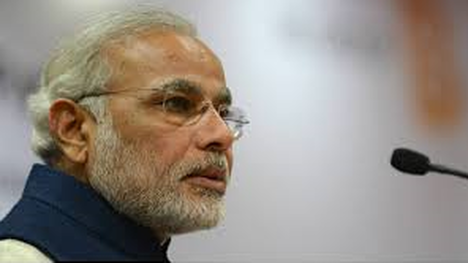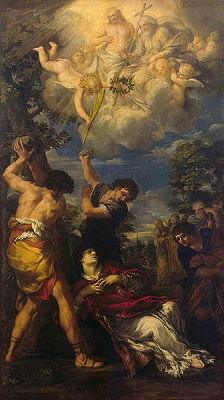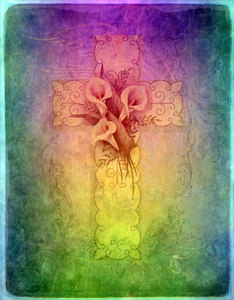2020 Pennsylvania Ave. NW #241
Washington, D.C. 20006
www.persecution.org | E-mail: icc@persecution.org
By ICC's India Correspondent,
6/25/2015
Washington, D.C.
International Christian Concern
The first year of Prime Minister Narendra Modi's rule has been a difficult one for Christians. Increased levels of religious intolerance and radical Hindu nationalism over the past twelve months have made the lives of Christians increasingly difficult in India. Under the Modi regime, many radical Hindu nationalist groups have escalated their activities, infringing upon religious freedom and causing terror among the Christian community. Human rights groups have documented over 600 cases of religiously motivated violence against religious minorities in the first year of Prime Minister Modi's rule. Of these 600 cases, Christians were targeted in 194.Modi's First 100 Days
The first 100 days of Prime Minister Modi's rule saw instances of persecution against Christians and Muslims, two of India's largest religious minority groups, skyrocket. The Vishwa Hindu Parishad (VHP), the Bajrang Dal, and other radical Hindu nationalist groups increased their intimidation campaigns during this time period and as a result there was a dramatic increase in the number of attacks on religious minorities' places of worship.
Over 600 instances of religiously motivated violence were recorded in India's northern state of Uttar Pradesh alone. In almost all of these cases, the violence was perpetrated by Hindu radicals against religious minorities.
Despite this spike in violence, Prime Minister Modi remained silent regarding the religious violence spreading within his country's borders. Prime Minister Modi's silence in particular upset India's religious minorities because it was perceived as tacit approval of the Hindu radicals violent activities.
Dr. John Dayal of the United Christian Forum told International Christian Concern (ICC) that, "The sad part is that the Prime Minister does not speak either in public or in his party against hatred."
Christianity Made Illegal
As the violence in Uttar Pradesh continued to spread, an anti-Christian campaign led by radical Hindu nationalists concluded in a ban on of non-Hindu religions, specifically targeting Christianity, in over 50 villages in Chhattisgarh. Essentially, Christianity was made illegal by village ordinance in these 50 villages.
Suresh Yadav, the area president of a local Hindu radical group, said that, "Over 50 gram panchayats (village councils) have passed orders banning 'all non-Hindu religious propaganda, [including] prayers and speeches in the villages."
This resolution, which was widely covered by the media, created a great deal of fear among the Christian communities in Chhattisgarh. It also dramatically impacted the ability for these communities to practice their Christian faith.
Pastor Abhimelek Sona, a local pastor, said, "The situation is very sensitive and alarming. The Christians are fearful as the series of incidents are taking places in this region."
Following the passing of this resolution, local Christians were told to either recant their Christian faith or face a social boycott. In this particular case, Christians who refused to recant their faith were denied access to drinking water from the village's public well and were blocked from harvesting from their own fields. Despite this development, Prime Minister Modi continued to remain silent on the increase of religious intolerance in India.
Christmas Cancelled for Good Governance Day
As India approached December, the BJP led government declared that December 25was to be observed as "good governance day" instead of Christmas. This was interpreted by India's Christians as a deliberate effort to substitute Christmas, which had been celebrated under previous regimes, with a secular government holiday.
The Archbishop of Bangalore, Dr. Bernard Moras, came out strongly against the good governance day announcement, questioning the motivation for scheduling it on the same day as Christmas. While speaking on national television, Dr. Moras said, "[The] 25th of December is universally accepted as Christmas - the birth of Jesus Christ and the whole world celebrates the day as Christmas. Now, to announce in India, the 25th of December as good governance day, I personally feel it is not a good decision. It is hurting the sentiments of Christians definitely and not only of Christians, but also of others. I feel good governance is a necessity today everywhere but why fixes it on [the] 25th? Christmas is coming down over the last 2,000 years, not just 100 years."
The hard times for Christian minorities continued through December and into the New Year as five churches in New Delhi were attacked and vandalized within two months. Included in these attacks was the burning of St. Sebastian Church which was set on fire in the early morning hours of December 2, 2014 by unknown suspects likely motivated by an anti-Christian agenda.
Hundreds of Christian Protestors Arrested
On February 5, 2015, hundreds of Christians were arrested in New Delhi for demonstrating against a series of attacks against churches and Christian institutions in the city, including the burning of St. Sebastian Church. Demonstrators were arrested by police as they marched from the Sacred Heart Cathedral to the home of the Home Minister. According to eye-witnesses, police dragged nuns, priests, and women into buses as they protested during the march against growing intolerance towards religious minorities and police inaction.
Dr. John Dayal, said that he was among the 200 people who were arrested by police when they started the march. Dayal said, "Our protest demanded that the government inquire into the violence against Christians because we [no longer] trust the police to investigate it properly."
India's International Reputation Tarnished
While traveling to India in January 2015, U.S. President Barack Obama's remarks on religious freedom came as comfort to the suffering Christian community. President Obama, while admonishing the growing religious intolerance in India, said, "India will succeed as long as it's not splintered along religious lines...nowhere is it more important to uphold religious freedom than in India."
President Obama's statement on religious freedom in India was followed by him remarking on growing religious intolerance in India at the National Prayer Breakfast in Washington, D.C. These statements, coupled with the international media's coverage of Christian protests, finally forced Prime Minister Modi to break his nine months of silence on religious intolerance since becoming prime minister.
In all, the increased religious intolerance and violence India has witnessed under the first twelve months of Prime Minister Modi's rule convinced the U.S. Commission for International Religious Freedom (USCIRF) to maintain India's status as a "Tier 2" Country of Concern in its 2015 Annual Report on religious freedom. USCIRF's 2015 report marked Hindu radical groups' reconversion programs, attacks on churches, and the continued hate campaigns being openly waged against India's religious minorities as particular points of concern.
Prime Minister Modi's first year in the office has coincided with a dramatic increase in religious intolerance and violence against India's religious minorities, particularly Christians. The reconversion campaigns, the anti-Christian policies, and continued attacks and hate speeches against religious minorities continue to make life difficult for many Christians. Though Prime Minister Modi has made promises to fight religious violence, so far he has failed to translate his words into actions. What will the next twelve months of Prime Minister Modi bring for India's Christians? More persecution or change?
For interviews, contact William Stark, Regional Manager for South Asia: RM-SAsia@persecution.org
# # #
You are free to disseminate this news story. We request that you reference International Christian Concern (ICC) and include our web address, www.persecution.org. ICC is a Washington D.C.-based human rights organization that exists to help persecuted Christians worldwide. ICC provides Awareness, Advocacy, and Assistance to the worldwide persecuted Church. For additional information or for an interview, contact ICC at 800-422-5441.



 RSS Feed
RSS Feed